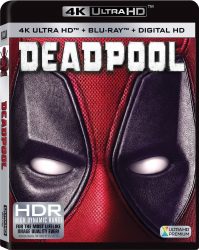Weekly News Roundup (October 30, 2016)
Welcome to the pre Halloween edition of the WNR. There’s nothing particularly scary or Halloweeny about this edition though, well other than the usual scary, depressing, frustrating and insane anti-piracy news stories that I post almost every week. More Groundhog Day than Halloween, I suppose.
![]()
Another scary anti-piracy idea comes from Cisco this week, as the networking giant has a new way to help cable companies protect their price gouging business model, via anti-piracy tech. Cisco plans to tackle the problem piracy of cable content, especially the live streaming of cable channels, by something they call Streaming Piracy Prevention (SPP). SPP will help cable networks digitally watermark their content, and when a stream or download is detected by SPP, it’s able to trace the pirated content (via the watermark) all the way back to the subscriber account that’s responsible for pirating the content. In the case of a live piracy streaming, SPP is able then to communicate with the cable company’s systems and immediately shut down the account in question, thus cutting off the stream in the quickest possible way.
SPP will be completely automated, meaning no human intervention is required. And because of this, SPP is also likely to trigger a lot of false positives if the past is any indication.
Streaming piracy is a big problem, especially at times of major sporting events like the World Cup or the Olympics. But I’m always weary of tech solutions to piracy, especially automated ones. And it still doesn’t address the root cause of piracy, which is an access problem, usually caused by high pricing, lack of value, choice, and services that aren’t in tune with how people want their content delivered (that is, online and accessible everywhere – the polar opposite of a cable connection).
Now a story about a different kind of piracy, and something that involves players completely within the film industry. Warner Bros. has sued well known talent agency Innovative Artists for copyright infringement, for leaking award screeners that were sent to the agency. The screeners that have been mentioned in the lawsuit are for the movies ‘Creed’ and ‘In the Heart of the Sea’ and were sent to Innovative – the digital watermark in the pirated downloads were then tracked to the copies given to the agency. The agency represents clients including the likes of Adam Ferrara (Rescue Me), Alicia Witt (Twin Peaks) and used to represent The Big Bang Theory’s Jim Parsons.
Innovative have since provided an official statement, saying they were surprised that this matter wasn’t handled privately and will now head to the courts, despite the agency having previously cooperated fully with Warner on the same matter. The sharing of screeners, Innovative says, is also commonplace in Hollywood and something that Warner knows all about.
So instead of going after downloaders, it seems Hollywood need to get their own house in order, since screener piracy, one of the most damaging kind (because it usually happens before the retail disc release of the movie), has become far more common in the last couple of years as pirates up their game and try to release movies as fast as possible.
![]()

Ultra HD Movies like Deadpool may sound better on the Xbox One S thanks to a firmware update in 2017
The Xbox One S is helping Microsoft bridge the sales gap between the console and the PS4, at least in North America, and at least some part of that is due to the inclusion of a new Ultra HD Blu-ray drive in the console, allowing it to play the latest 4K movie discs. This has helped to greatly improve the value of the Xbox One S, which is actually cheaper than most standalone UHD Blu-ray players on the market. This makes the Xbox One S almost no brainer for those looking to buy a UHD player, even if they don’t want to play too many games – I say almost because the Xbox One S’s UHD Blu-ray function does lack a few key features.
These mostly relate to the console’s poor audio output options, with no bitstream output support, and as a result, no support for Dolby Atmos and DTS-X. This rules out the Xbox One S as a serious contender for those that have already heavily invested in these next-gen audio system, or are planning to.
At least this was the case until this week, when Microsoft announced that bitstream output, along with Dolby Atmos and DTS-X support, will be coming to the Xbox One S in early 2017. Not only that, bitstream support and Dolby Atmos for gaming is also coming to the original Xbox One.
The inclusion of UHD Blu-ray even in the cheapest Xbox One by Microsoft, in my opinion, is a masterstroke. Whether this helps the Xbox One catch up to the PS4 is another matter though, as the PS4’s lead is extremely impressive, to say the least.
======
I think that’s all we have for this week. Hope it wasn’t too boring. See you next week!

